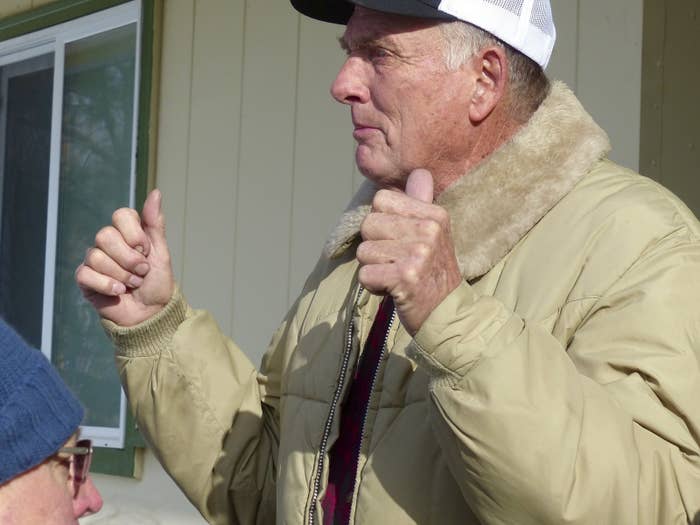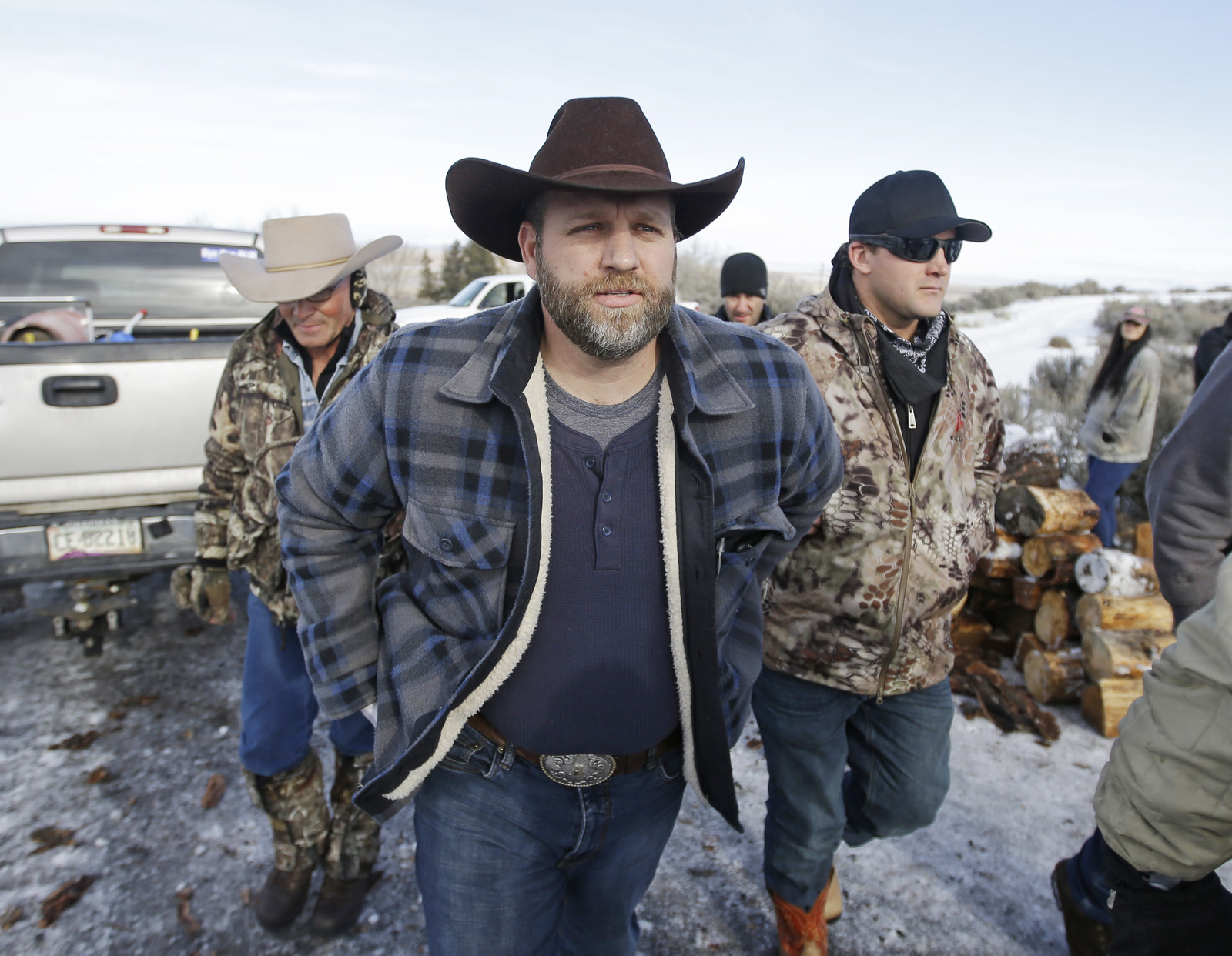
In a move that could embolden a movement that has clashed — at times violently — with the federal government, President Donald Trump has pardoned a pair of Oregon ranchers who were serving time for arson, and whose case was the impetus behind a deadly 2016 standoff at a federally managed wildlife refuge.
Trump signed pardons Tuesday for Dwight Hammond Jr. and his son, Steven Hammond, who were serving five-year prison sentences for starting fires that burned federal land. A White House statement called the sentences "unjust" and praised the ranchers as "respected contributors to their local community" who have support from "neighbors, local law enforcement, and farmers and ranchers across the West."
The comment about support across the West hints at the pivotal, if sometimes reluctant, role the Hammonds have played in a movement that generally opposes federal management of public land — and at the reverberations their pardon could have across the West.
The father and son first gained a national spotlight in 2016, when protesters led by members of the Nevada-based Bundy family arrived in their small Oregon town. The protesters were there to oppose the Hammonds' prison sentences, which resulted from convictions over fires the Hammonds set in 2001 and 2006. The 2001 fire began in a forest when Steven Hammond passed out matches to a four-person hunting party and told them to "light the whole countryside on fire," according to a witness who testified at a 2012 trial.
The 2006 blaze was the result of the Hammonds' attempts to protect their grazing land from a wildfire, the Oregonian reported. The ranchers reportedly set backfires as a wild land blaze bore down on the area, but set them at night and didn't warn nearby firefighting crews. A burn ban was also in effect at the time.
The 2016 protest against the resulting sentences eventually turned into an armed standoff at the Malheur National Wildlife Refuge, which ultimately ended after one of the participants, LaVoy Finicum, was shot and killed by law enforcement.

The Oregon standoff followed a similar — though not deadly — confrontation in 2014 near the Bundy family's ranch in southern Nevada. At issue in both cases was the way the federal government administers vast swaths of public land across western states.
The standoffs were the most recent major expressions of an anti–federal government movement known as the Sagebrush Rebellion that has been simmering for decades over complaints about land regulation and what many ranchers say is a dwindling capacity to make a living off of rural Western lands.

The Hammonds' pardons indicate "the Trump administration is elevating the position of ranchers to supersede the authority of federal land managers," Leisl Carr Childers, a history professor at the University of Northern Iowa, told BuzzFeed News Tuesday. The move, she said, could energize "those who want to privatize public lands" — a goal of some anti–federal government advocates.
"There’s a receptive audience in the Trump administration," Childers said.
She also expressed concern that the Western land use movement — which in its most recent iteration included a robust convergence of ranchers and far-right militia members — could again turn violent if it continues to gather steam.
"My concern is that the threat of violence will lead to a wave of violence," she said.
Aaron Weiss, a spokesperson for the Center for Western Priorities, a conservation group, told BuzzFeed News that the pardoning of the Hammonds would "clearly embolden" supporters of the Bundy-led standoffs and "adds fuel to an already dangerous situation."
"Trump and [US Interior Secretary Ryan] Zinke are sending a message that they have their backs," Weiss added.
Conservatives who praised the pardons also agreed that Trump's move held a broader symbolism for the rural West. US Rep. Greg Walden, an Oregon Republican who lobbied Trump on behalf of the Hammonds, described it as "an acknowledgment of our unique way of life in the high desert, rural West."
Though several participants in the Oregon and Nevada standoffs did not respond to BuzzFeed News' requests for comment, several lit up their Facebook pages with news of the pardons. Carol Bundy, wife of Bundy patriarch Cliven Bundy, shared a slew of posts from the family's supporters celebrating the Hammonds' release Tuesday and thanking Trump.
Calling the pardons "a step in the right direction," her son, Ammon Bundy — a leader of the Oregon standoff — wrote, "let’s remember those still suffering whom went to expose the atrocities of the Hammonds." The Oregonian reported that Ammon also vowed Tuesday to continue to fight the federal government over "control over land and resources in our states."

The Hammonds themselves put their pardons in a larger context as well, saying in a statement that they hope "this action by President Trump today, will also help signal the need for a more measured and just approach by federal agents, federal officers and federal prosecutors — in all that they do."
The statement, put out by their lawyer, typifies reactions among some rural conservatives Tuesday expressing hope that the pardons would be part of a larger trend in the struggle with the federal government.
Given the symbolism many have attached to the pardons, the legal nuances of the Hammonds' case — specifically the five-year mandatory minimum sentences they were forced to serve after a judge initially handed down more lenient terms — will likely be lost, said Lewis and Clark School of Law professor Michael Blumm.
"I think that the people who have an anti-federal agenda are going to trump this as justification for things like the Malheur takeover," Blumm said. "I think the lesson that will be trumpeted will be that the Bundy crowd is winning."
